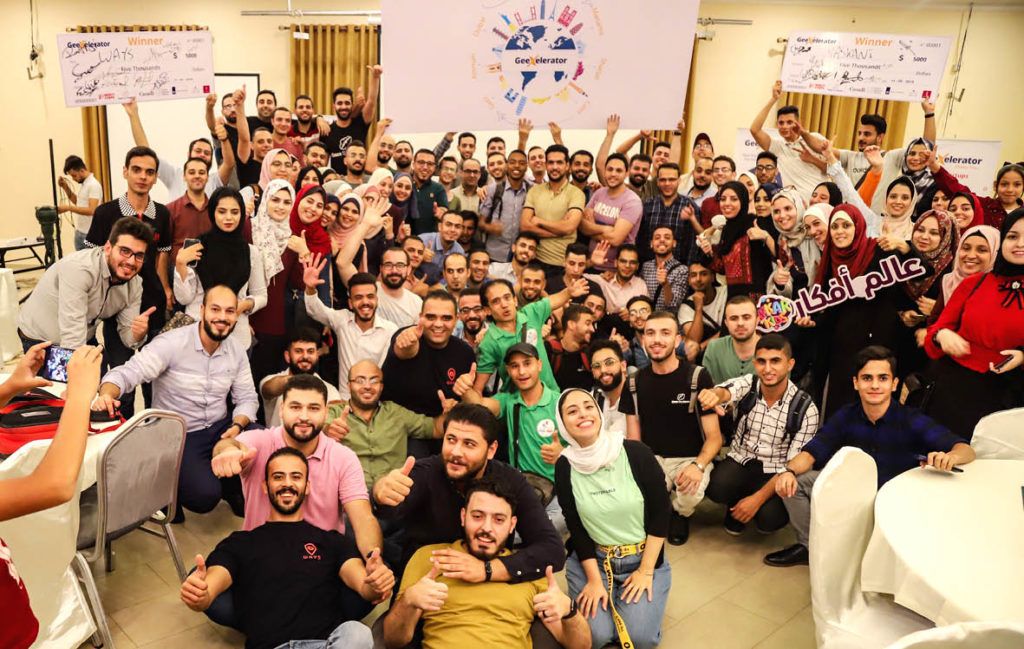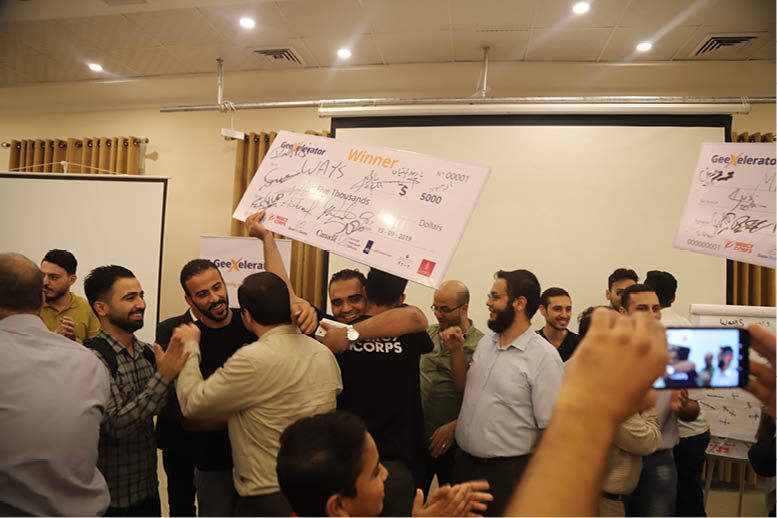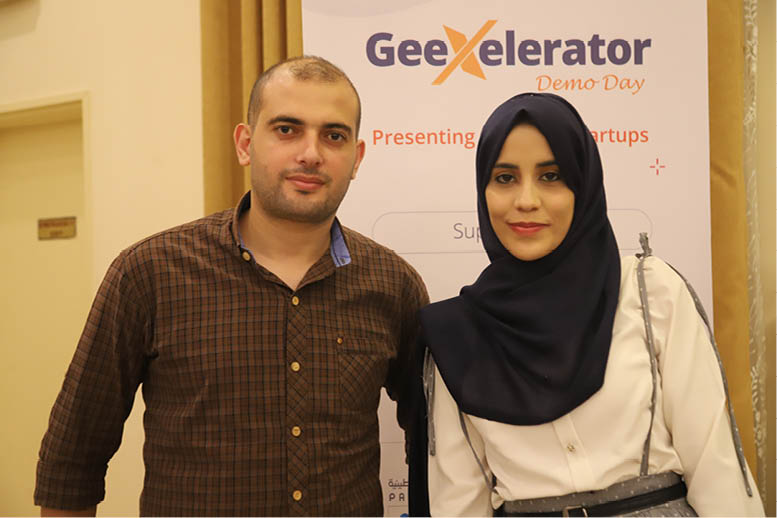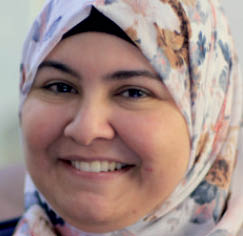Despite the challenges that surround Gaza, Gaza Sky Geeks (GSG) was launched with a self-imposed mandate to help Gaza’s highly educated youth, particularly those who are unemployed and whose prospects look bleak. Luckily, Gaza has consistent access to high-speed fiber internet that enables its youth to sidestep many of the current restrictions on movement of people and goods that hamper the Gazan economy. In light of this vision, GSG was founded in 2011 in partnership with Google and the international NGO Mercy Corps.
We started our mission by holding the first Start-up Weekends in Gaza. Then, we began to raise awareness about tech entrepreneurship among Gaza youth. In 2014, we began to work with start-up founders to grow their businesses outside Gaza and develop our own incubation-program curriculum. In addition, we facilitated the first venture investments into Gazan start-ups between 2014 and 2015, which had a great impact on passionate participants.
Today, GSG is a leading co-working space, start-up accelerator, and technology-education hub in Gaza. We bring together under one roof online freelancers, outsourcers, and start-up founders to share ideas, learn, innovate, code, and geek out!

One of the main programs of GSG is the GeeXelerator Program, which is an intensive 16-week pre-seed acceleration program that aims to help teams build a usable product that depends merely on the most essential core features, validate the core product feature with users, launch the feature online for public use, and scale their products’ user base. In fact, the GeeXelerator is divided into three phases, namely: business-case validation and building business models; coding to develop the most important core features; and public launch online and investment preparation.

The start-ups that were qualified to participate in the acceleration phase returned recently from the Road Show, which is a tour around the MENA region. The tour included visiting incubators and accelerators in addition to start-up participation in pitching competitions in Jordan, Dubai, Egypt, Bahrain, and Sharjah. Hala Arab and Ways are examples of the incubated start-ups that participated in the Road Show.
Hala Arab is a tourism website that targets Arab tourists traveling to Turkey. It provides tourists with various suggested travel programs. Razan Abu Tawaheena, CEO of Hala Arab start-up, had this to say: “When I came to GSG for the first time, I participated at the Code Academy to learn how to build web apps. That encouraged me to start my own business. Fortunately, I found the opportunity to build a product that helps travelers and tourists from the Gulf region who plan to go to Turkey. I am blessed to have had the support of my brother who lives in Istanbul.”

Ways is a mobile application that links customers with nearby cyclists to arrange the delivery of goods, products, and meals. Jamal Miqati, CEO of Ways start-up, explains: “Since college, my dream was to be a successful entrepreneur. This is not my first time to participate in the GeeXelerator Challenge. During my journey, I learned from my failures and did my best to make my start-up succeed. All the hard work brought about fruitful results in the end as I won first place in the competition with an award of US$ 5,000.”


